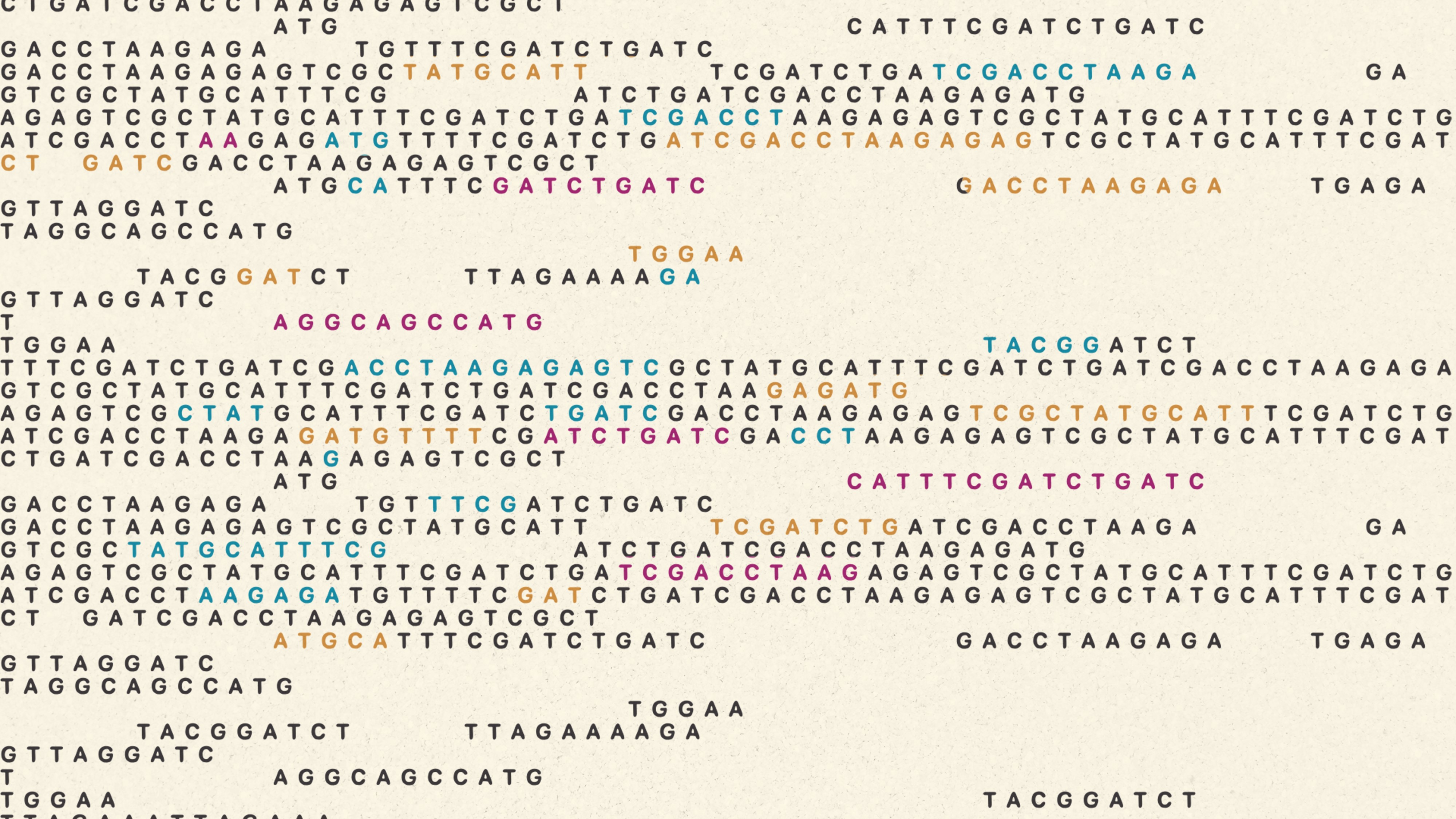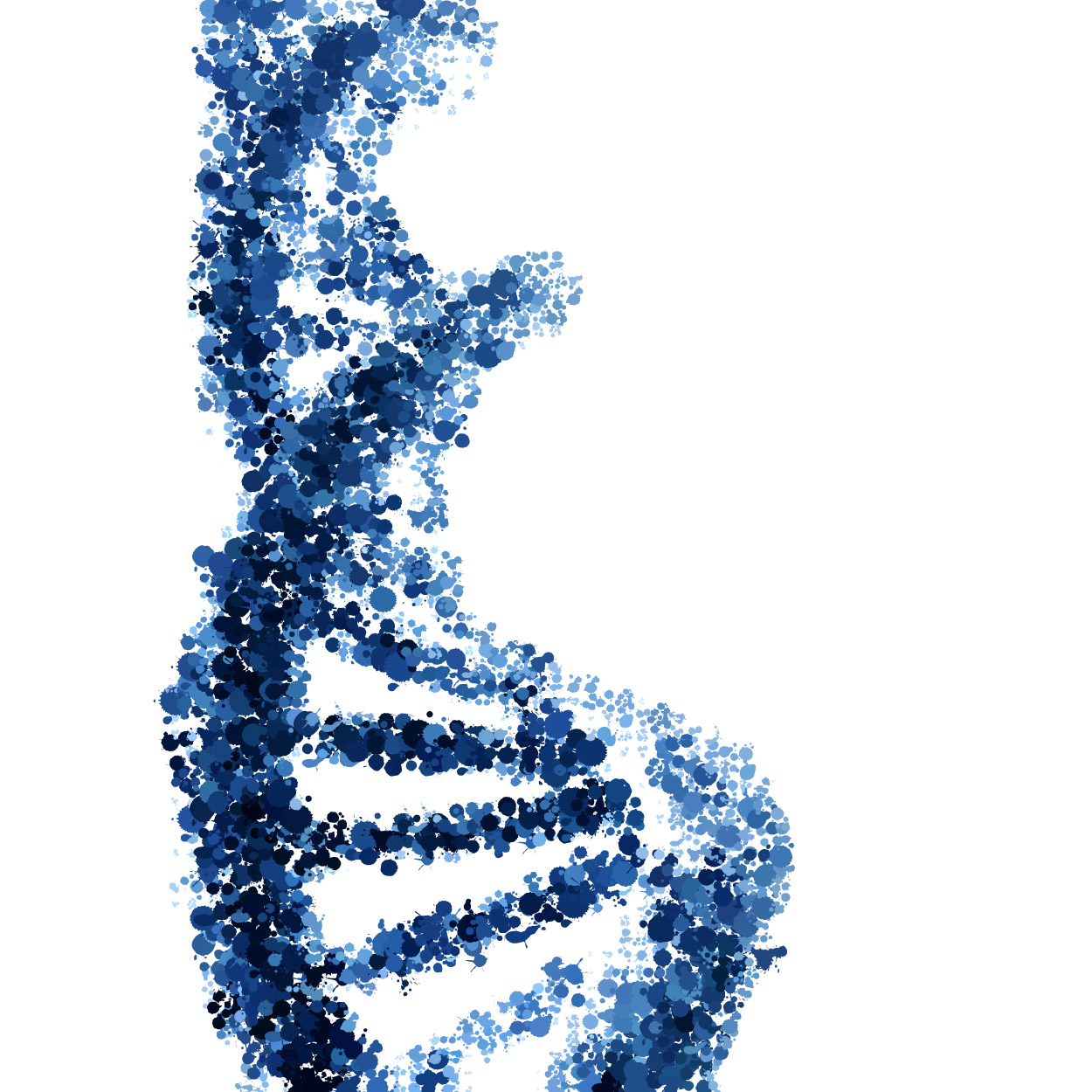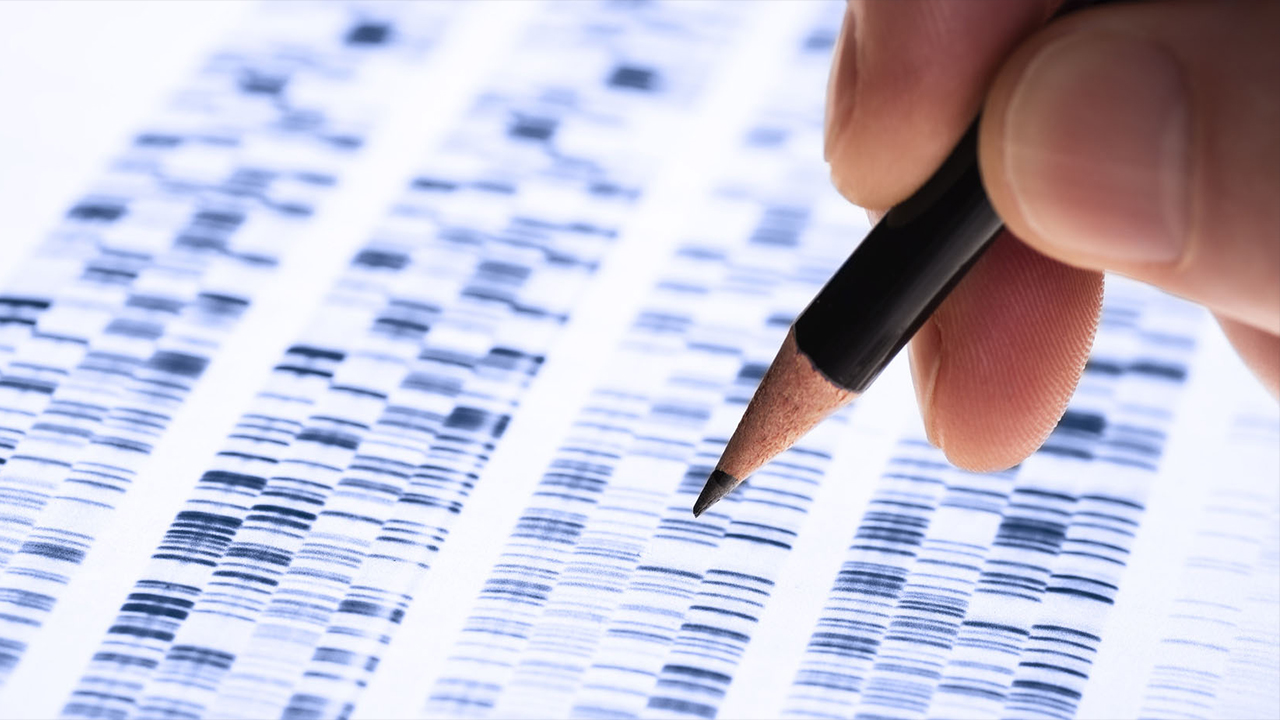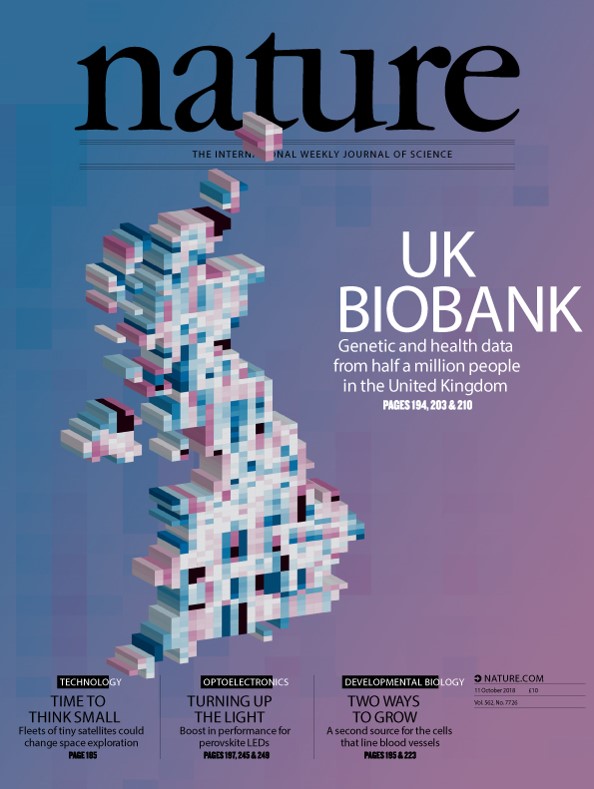Understanding genetics
Whole genome sequencing for our 500,000 volunteers
We've sequenced the full genetic code of our 500,000 volunteers. Combining it with their existing de-identified data from health records, lifestyle information, imaging and much more creates the most detailed picture of health and disease we've ever had.

One of the major strengths of UK Biobank is the wide range of de-identified information collected on all 500,000 participants. This includes genetic data, extracted from blood samples provided when you joined the study.
Combining this genetic data with information about your lifestyle and health allows scientists to unravel the complex interaction of nature (genes) and nurture (environment & lifestyle) in causing a wide range of diseases. It will allow better identification of those who might be more susceptible, and allow the development of precise treatments based on an individual's genetic profile.

Whole genome sequencing: Whole-genome sequencing measures every single genetic building block across the whole genome. Combined with the detailed lifestyle and health records data we hold for UK Biobank participants, it will shine a light on the role of our genes (particularly variants in the non-coding regions of our genome) in health and disease.
In a vanguard study, the Medical Research Council provided funding to conduct whole-genome sequencing on 50,000 participants. This major undertaking spurred government, charity, and industry to take this initiative further and sequence the entire genomes of the remaining 450,000 participants which was completed and made available to researchers in 2023. The whole genome sequencing data on 500,000 UK Biobank participants is now available to approved researchers on the UK Biobank Research Analysis Platform.

Exome sequencing: The exome makes up about 2 percent of the human genome and contains the protein-coding genes. It is this area that scientists believe may inform the discovery and development of new and improved medicines. A pioneering collaboration between pharmaceutical companies GSK and Regeneron measured the exomes of 50,000 participants and released the data to researchers in 2019.
Following this success, a collaboration of leading life sciences companies brought together by Regeneron has completed the challenge to exome sequence the remaining 450,000 participants. The full release of exome sequencing data (470,000 exomes) is now available to approved researchers.

Genotyping and imputation: Small changes in the genetic code contained within our DNA are known as genetic variants, many of which play a role in health and disease. A US-based company called Affymetrix measured about 850,000 carefully selected genetic markers across the genome that are known or suspected to be involved in a range of diseases, from blood samples collected from all half a million participants.
From this, we were able to estimate or impute a further 90 million genetic variants across the genome. The data were first made available for researchers in 2017 and are enabling researchers to make scientific discoveries about the role of genetics in the development of many diseases.
What are genes?
Genes are tiny packages of information responsible for switching on and off biological processes, such as telling cells when they should grow or die. There are about 20,000 genes that ultimately control all our human functions. They are located in our DNA, which is a directory of our biochemical ‘selves’, found in almost every single cell in our body.
DNA is divided into 23 pairs of chromosomes and constructed from more than 3 billion building blocks (called nucleotides). When packaged up as genes, DNA accounts for our individual characteristics like hair colour and facial features. Damage to DNA gathered over time either naturally or by our lifestyles (such as smoking) can put us at increased risk of diseases.
Scientists want to know what these genes do, how they influence each other and are influenced by other biochemical signals, and what can be done when they are damaged and behave in ways that they should not. UK Biobank is helping researchers lead the way in this sort of research – so that we can live longer, healthier lives in the future.

Genome-wide association studies
Thousands of researchers are using UK Biobank to do genetic studies. Some of the most frequently undertaken studies are called GWAS – genome-wide association studies. These compare specific known differences in DNA and see how often they occur in people with particular diseases compared to those without it, which may suggest a link between a particular genetic variant and disease. Diseases caused by a single defective gene tend to be easier to identify because their consequences are often significant (e.g. cystic fibrosis). However, most illnesses are caused by many genetic variants that have small effects and so large studies are needed to study this properly.

How do cells withstand the passage of time?
Material left over from the genetic analyses has been put to good use allowing scientists to tackle two of the most critical questions to ageing – why do some people stay healthy in older age while others succumb to chronic disease.
Researchers are interested in tiny pieces of DNA called telomeres, which cap the ends of each chromosome and which shorten each time the cell divides. Eventually, they shorten enough to signal to the cell that it is time to die, and researchers think this biological ageing may have an effect on health and disease.

Who is using UK Biobank genetic data?
There are hundreds of studies under way by approved researchers using genetic data and other information available from UK Biobank. You can find out more by simply using the term ‘genetics’ in the search on Approved Research and Publication pages on this website.
A lot has been written in the scientific journals about the way in which UK Biobank will advance the understanding of disease – and pave the way for new treatments. The prestigious science journal Nature took a look at the way UK Biobank genetic data are transforming the research landscape.
Published genetic research
Association of Lifestyle and Genetic Risk With Incidence of Dementia
Ilianna Lourida and et alApproved Research ID : 9462
The UK Biobank resource with deep phenotyping and genomic data
Clare Bycroft et alGenome-wide association studies of brain imaging phenotypes in UK Biobank
Elliot T. Lloyd et. al.Last updated
